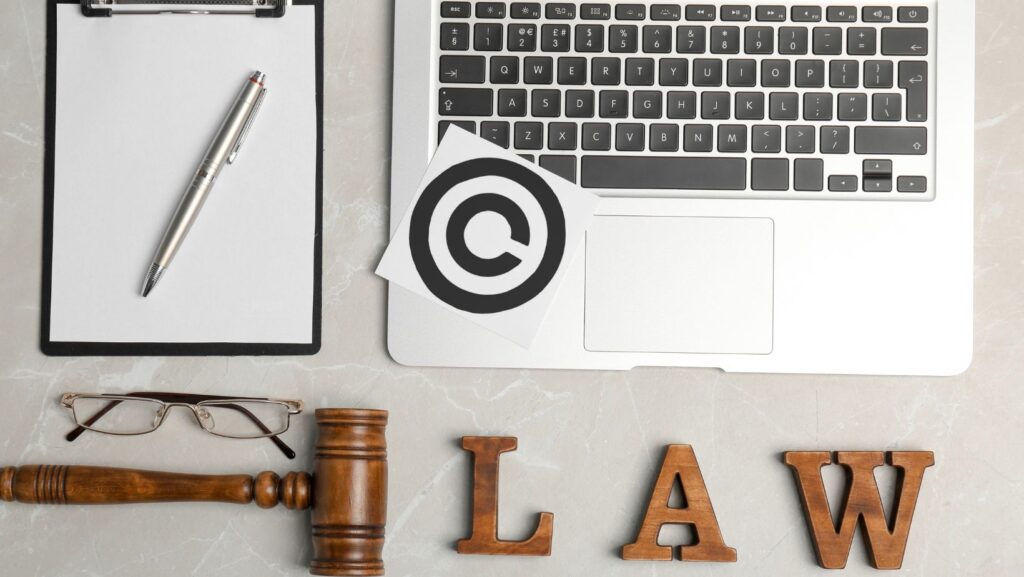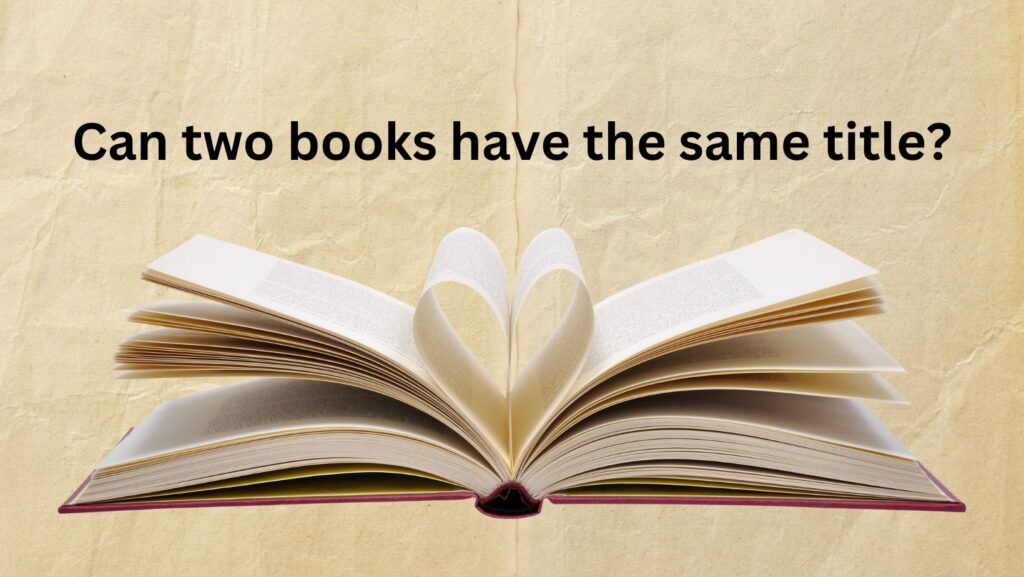Have you ever pondered whether two authors can release books with identical titles? Or perhaps you’re curious about the rules governing copyrights for books, movies, and songs? As content creators and marketers, it is crucial to understand the legal landscape surrounding titles, including trademarks, service marks, and registered copyrights. In this blog post, we will delve into the intricate realm of copyright law, providing you with the knowledge to navigate the potential legal pitfalls. Let’s embark on a journey to explore the limits of creative expression and safeguard your artistic endeavors.
Table of Contents
Copyright Law Fundamentals

Copyright law may appear complex and daunting, but it is an indispensable domain for individuals involved in the creative industries. At its core, copyright law grants exclusive rights to creators over their original expressive works, encompassing literature, music, and art. Essentially, this means that without the creator’s permission, others cannot reproduce, distribute, or display their work.
While there are exceptions and limitations to copyright law, it is crucial for individuals and businesses to obtain the necessary licenses or permissions before utilizing any copyrighted material. Adopting a cautious approach is wise, as copyright infringement can result in expensive legal repercussions. By staying informed and adhering to the basics of copyright law, creatives can safeguard their work and avoid potential legal entanglements.
Distinguishing Trademarks from Copyrights
As a business owner, it is essential to grasp the distinctions between trademarks and copyrights. While both safeguard intellectual property, trademarks protect brand names, logos, and slogans, whereas copyrights defend original works of authorship, such as books, songs, and artwork.
A helpful way to differentiate the two is to view trademarks as the face of your business, while copyrights encompass the creative content generated by your enterprise. By securing the appropriate protection for your intellectual property, you can ensure the preservation of your brand identity and creative works, shielding them from infringement and theft.
Decoding Copyright Infringement
In today’s fast-paced world, comprehending the intricacies of copyright law is crucial. With content being created and shared at an astonishing rate, unintentional infringement on someone else’s copyright can occur easily. Consequently, understanding what constitutes infringement is vital for safeguarding yourself and your work.
Copyright laws shield original works, including music, videos, literature, and software, from unauthorized copying or distribution without the owner’s consent. Grasping the boundaries of acceptable usage can be complex, but it is always prudent to err on the side of caution when dealing with intellectual property. So, the next time you create or share content, keep in mind the dos and don’ts dictated by copyright law.
Copyrightable Works
Copyright laws exist to preserve the originality of works crafted by individuals. But what precisely falls under the purview of copyright protection? The answer is clear—books, articles, movies, music, and even software can be copied. Anything original that is fixed in a tangible medium of expression can be safeguarded.
Copyright laws empower creators by granting them control over the usage and distribution of their work. Respecting copyright laws and comprehending what can and cannot be used without permission is paramount. Let us collaborate in honoring each other’s creative works and ensuring they receive the protection they deserve.
Requirements for Copyright Protection
Copyright protection is a crucial facet of the creative industry, yet not every work is eligible for such protection. To qualify, a work must fulfil specific requirements. Firstly, it must be an original creation of the author or artist, free from any substantial copying. Secondly, it must be fixed in a tangible form, such as a book, recording, or painting.
Lastly, the work must possess a minimum level of creativity. These criteria are designed to safeguard only those works that genuinely reflect the author’s creative efforts. As creators continue to push boundaries, the legal framework for protecting their works must evolve alongside them.
Can Two Books Share the Same Title?

Guidelines for Using Titles in Copyrighted Works. As avid readers, we have all encountered books with similar titles, leaving us to wonder if they bear any connection. Can two books indeed possess identical titles? The answer is yes; they can.
However, copyright laws impose restrictions on the use of identical titles for copyrighted works. This means that if two books share the same title, the authors, or publishers must ensure that there is no confusion between the two.
To avoid legal disputes or confusion, authors should strive for unique and memorable titles that distinguish their work. So, the next time you come across a book with a title matching one you’ve read before, conduct thorough research to ensure you’re not in for an unexpected surprise.
Given the intricacies and ever-changing nature of copyright law, it is advisable to seek guidance from experts before determining the availability or necessity of releases for your creative works. Understanding the interplay of copyright, trademark, and patent law is best explained from the perspective of professional legal counsel.
Conclusion
Copyright law does not protect titles of works, be they books, movies, songs, or other artistic creations. This is because titles are typically short and do not meet the requisite level of creativity needed to qualify for copyright protection.
While this means that two authors could technically publish separate books with the same title, there are other legal and practical considerations that may discourage this. Trademark law, for example, can protect a title if it is used in a series or if it’s so unique and well-known that it has developed a secondary meaning in the minds of the public.
Furthermore, publishing a book under the same title as a well-known work could lead to consumer confusion and be detrimental to the success of your book. It could also lead to reputational damage if it appears that you’re attempting to capitalize on another author’s success.
Thus, while copyright law may not prevent you from using the same title as another work, it’s generally a good idea to strive for a unique and original title that will not only help avoid potential legal issues but also set your work apart and attract your intended audience.



